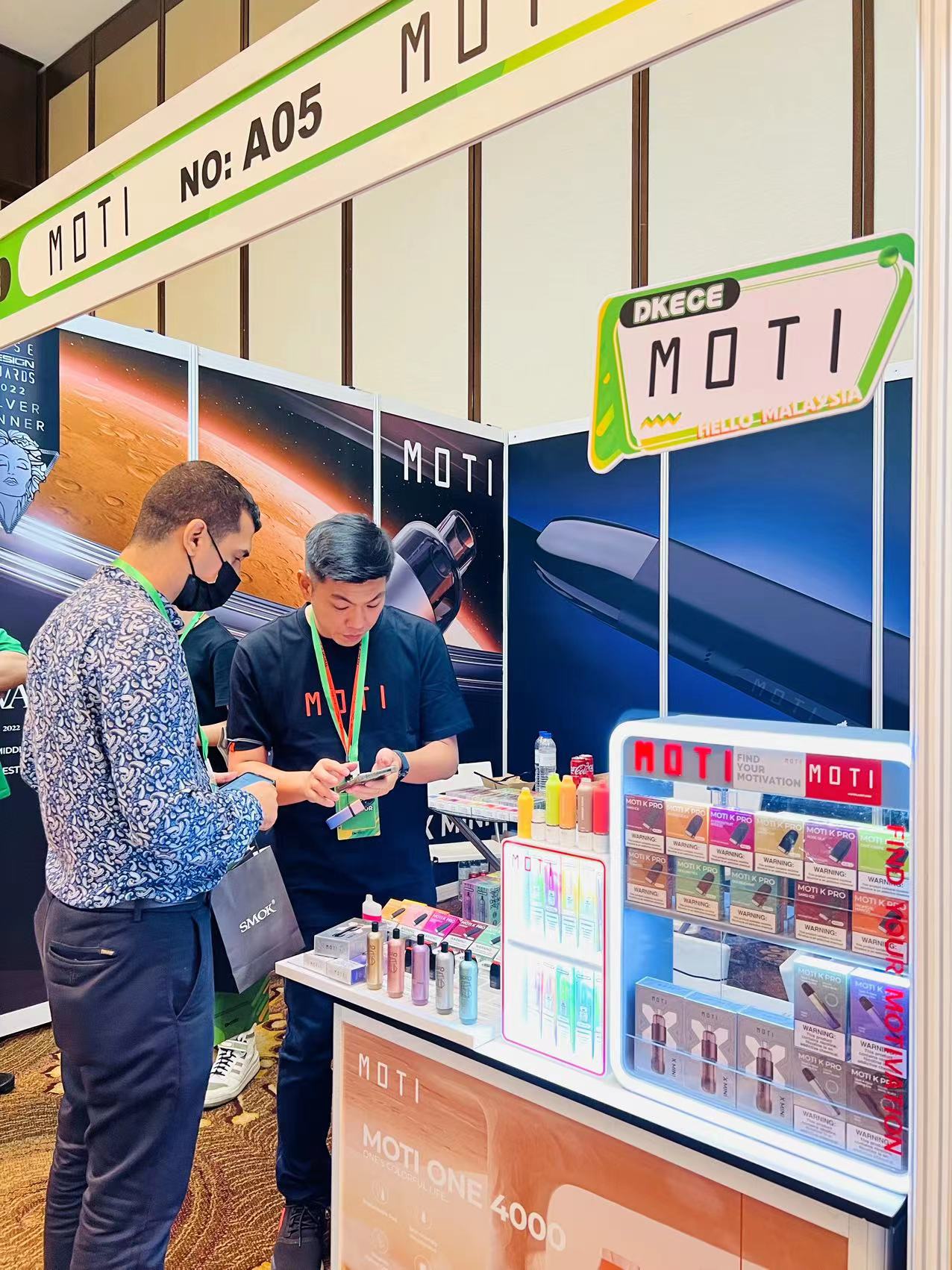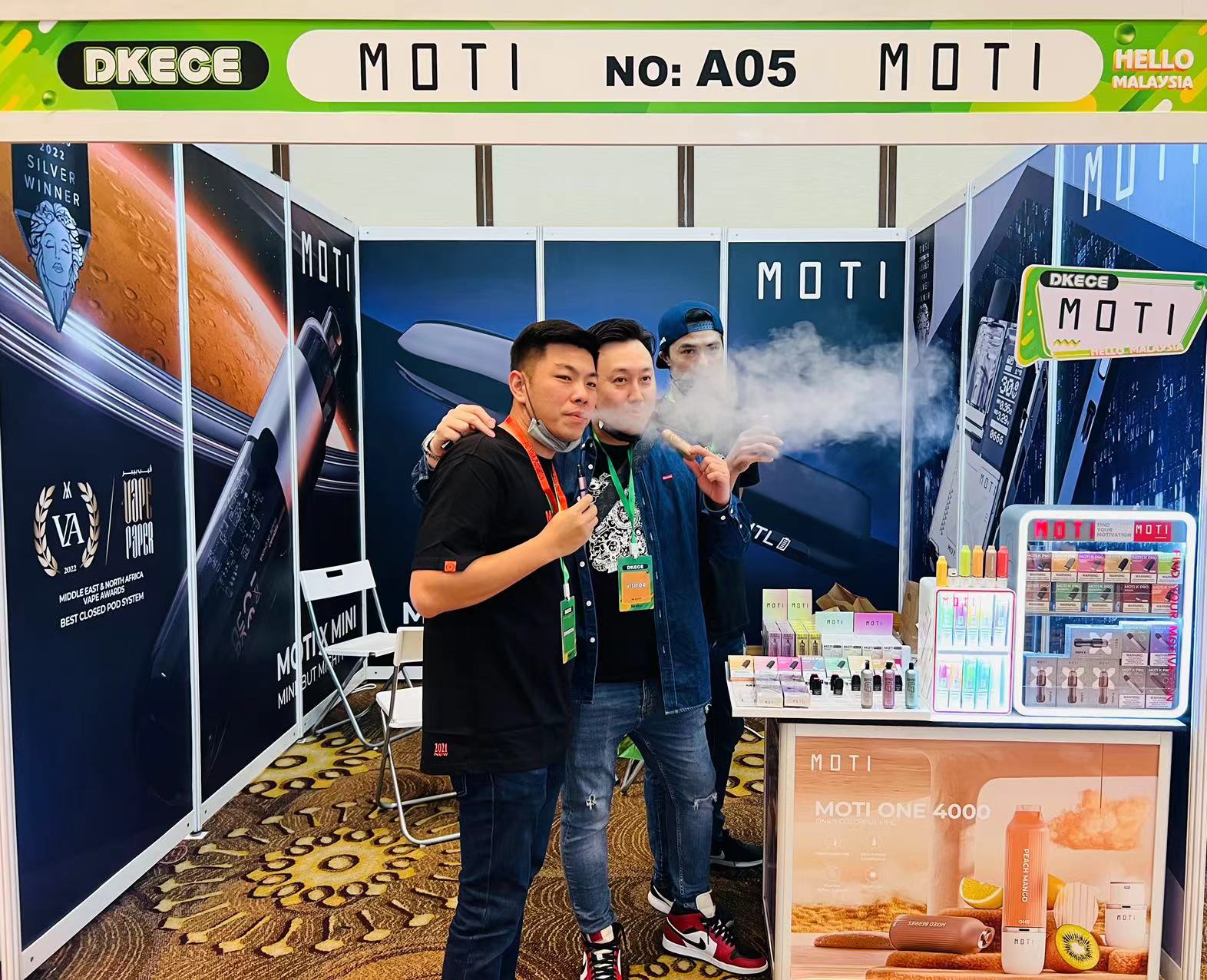
With the implementation of e-cigarette-related policies in many countries, the development of the e-cigarette industry is gradually on the right track. According to China's "2022 Electronic Cigarette Industry Export Blue Book", there are currently more than 1,500 electronic cigarette manufacturers and brand enterprises in China, and more than 70% of them mainly export their products overseas. It is estimated that the total export value of electronic cigarettes will reach 186.7 billion yuan in 2022, with an expected growth rate of 35%.
Compared with the Chinese market with increasingly strict regulatory policies, the overseas market is undoubtedly larger.

Southeast Asia is a very popular e-cigarette market in recent years. In particular, some countries have kept the space for flavored vapes, and there is considerable room for development. Many leading companies have also entered the market. They have aimed at the e-cigarette market in Southeast Asia as their first step. Many e-cigarette companies have sent teams overseas to gain an advantage in the Southeast Asian market.
The competition in the domestic market is fierce, and overseas markets have been deployed one after another. The first stop chosen by Chinese e-cigarette companies is the nearest Southeast Asian market. As one of the most potential e-cigarette markets, the Southeast Asian market has always been a battleground.
This year, we can see some exhibitions in Southeast Asia one after another, and also attracted many domestic e-cigarette brands to participate. Such as MOTI, SMOK, YOOZ, and other brands.

MOTI brings new vape products to the highland of Southeast Asia - the Malaysia market again. Unlike the Chinese market, some countries in Southeast Asia are open to e-cigarettes and even allow e-cigarettes to be sold online. According to data from Euromonitor, a consumer market research organization, the total market for e-cigarettes in Southeast Asia is expected to reach US$766 million in 2023.
Now, leading companies such as RELX and MOTI have also begun to bet on overseas markets. MOTI, the leading e-cigarette brand, now covers more than 60 countries and regions around the world, has more than 100,000 outlets of various types around the world, and even established an independent platform for the industry's leading e-commerce in North America.
Many manufacturers have gone overseas, which is bound to intensify competition in overseas markets. Although the prospects are unclear, this is the most valued choice by current e-cigarette manufacturers.

Going abroad is not as easy as everyone thinks, and needs to adapt to different regulatory policies, cultural differences, consumer habits, and other issues. As one of the earliest pioneers in the export of electronic cigarettes in China, MOTI has accumulated considerable experience in overseas business operations.
It is clear to everybody that a regulatory vacuum in any country cannot exist. Due to the historical development stage of Southeast Asian countries, some have not issued regulatory policies, but there are unwritten rules and some unspoken rules, which does not mean that there will be no regulations in the future. It just shows that e-cigarette companies need to learn to grow under "legal rules".

According to the MOTI business team in Southeast Asia, there are many compliance problems in the implementation of electronic cigarettes, but if you want to gain a firm foothold in an emerging market, you must rely on strong product strength. Leading companies such as MOTI rely on Its many years of R&D, production, and export experience have successfully won the favor of local consumers, and its various electronic cigarettes have been well received by Malaysian users.



